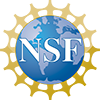Overview
Probabilistic methods have played an increasingly important role in many areas of mathematics, from the study of random groups and random simplicial complexes in topology, to the theory of random Schrödinger operators in mathematical physics. The Centre de Recherches Mathématiques will organize an intensive Thematic Program on Probabilistic Methods in Geometry, Topology and Mathematical Physics during the period of August-December 2016. The program will be comprised of five intensive week-long workshops, including a workshop in honour of Barry Simon; the latter will be preceded by a Young Researchers Symposium held at the Fields Institute. In addition, there will be lecture series by three Aisenstadt chairs: Nalini Anantharaman, Yuval Peres, and Scott Sheffield. The workshops will be preceded by preparatory lectures for advanced graduate students. Numerous long-term visitors and postdoctoral researchers will participate in the program, hosted by the CRM Laboratories in Analysis and Probability.
The thematic program will cover a broad range of topics, including geometric analysis on manifolds of metrics and applications to spectral theory and quantum chaos; geometry of random metrics and related problems in quantum gravity; applications of probabilistic techniques in PDE; eigenstate localization in random domains; probabilistic results in number theory; geometry of Teichmüller spaces; renormalization methods in dynamical systems; random variational problems; dynamical systems methods in PDE; random simplicial complexes and geometry of spaces of triangulations and connections to geometric group theory, manifold learning, topological statistics, and geometric probability; theory of random groups and their properties; probabilistic methods in 3-manifold theory; random growth problems and random matrices; random energy landscapes and their connections to stochastic PDEs and to integrable discrete models (such as TASEP); Bose-Einstein condensation; random matrices and random Schrödinger operators; dynamical systems and quasi-periodic operators; many-body quantum mechanics; orthogonal polynomials.
There will be an emphasis on interconnections and cross-fertilization of ideas between these topics, giving junior participants an excellent opportunity to learn from and interact with experts in several different fields.

